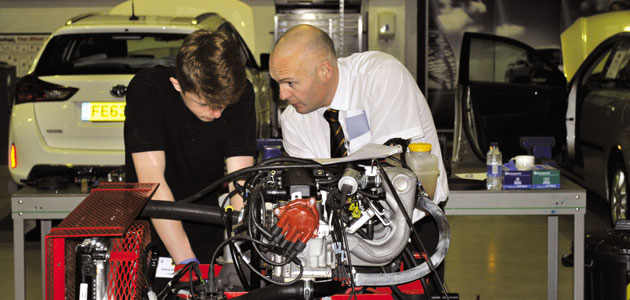
A new study by the Institute for Public Policy Research (IPPR) has warned that school leavers would be better off considering alternatives to university as they seek to forge a successful career.
The research, which was commissioned by the Edge Foundation, used data from the UK Commission for Employment and Skills to analyse job growth between 2012 and 2022. This concluded that the demand for more workers with practical skills – rather than a degree education – would continue to rise sharply over the next 10 years and that the majority of teenagers are likely to be better prepared for the workplace by shunning higher education in favour of jobs-based training.
Speaking last year, Vince Cable, the Business Secretary, admitted that large numbers of students were being forced to gain university degrees, even though they were “superfluous” to many careers. The result is that the number of university leavers has dramatically outstripped the supply of ‘advanced’ jobs. It is claimed that the proportion of the workforce deemed as ‘overqualified’ will continue to escalate in the future, amid a growing mismatch between skills supply and demand.
As our country’s youth unemployment figures continue to rise, leaving many stranded at home and reliant on their parents for financial support, how then can the situation be redressed? Craig Thorley, IPPR researcher, believes that a focus on high-quality vocational qualifications – such as apprenticeships – is the way forward, and PMM would agree.
The brutal truth is that allied trades are still seen by the majority as being the path on which the ‘no-hopers’, who may have struggled academically, should be ushered down. The IAM is a classic case in point. That ‘motor mechanics’ would likely fall into most people’s definition of a ‘low-skilled’ profession is testament to the fact that very few educational establishments (and consumers for that matter) have even the slightest clue about the skill-set and training required to competently repair modern cars.
I’ll likely have the ‘journalists union’ beating a path to my door by stating this, and perhaps I’m doing my own profession a disservice, but I honestly believe you’d have a far higher success rate with re-training a vehicle technician to become a humble hack, than would be the case if the shoe was on the other foot. Yet my own vocation would likely be seen as worthy of inclusion in the ‘higher-skilled’ category. The old mantra ‘Reality is irrelevant; perception is everything’ still rings true.
We’ve had the pleasure of multiple cups of tea at PMM readers’ premises over the last couple of months and I’ve been caught by surprise at the number of business owners that are in the market for a steady new hand to join their enterprise, but are ultimately left tearing their hair out at the shortage of suitable candidates available to them.
And yet we keep hearing that we’re living in a society that doesn’t offer young people a chance to be employed. Has it never occurred to our educational establishments (and the country’s parents) that the jobs are there? Why, however, should any employer take a punt on someone who may have spent the last three years learning very little on one of the increasingly diluted university degree courses?
I don’t have a definitive solution to the current problems, but a good start would be re-educating primary and secondary schools so that they understand the value – to individuals and society – of encouraging students into trade apprenticeships and professions. Perhaps more universities could collaborate with local businesses to run ‘graduate level’ apprenticeships with this level of qualification automatically placing the graduate a few rungs up the ladder when they come into full time employment.
Either way, it appears that too many teenagers are being pushed into taking a degree without properly considering the alternatives.
Are you having issues with recruitment? Do you believe our industry has a skill shortage? We’d love to hear your views and suggestions so please get in contact at pmm@hamerville.co.uk or tweet us @PMMmagazine









